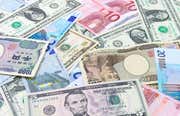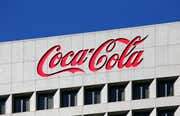Prior to 1945, orange juice was always freshly-squeezed – something that left the commercial orange juice industry susceptible to supply shocks due to the highly perishable nature of the juice. The invention of frozen concentrated orange juice (FCOJ) in 1945 – and the increase in home refrigerators – opened the gates to an international marketplace. Frozen concentrate remained the most popular form of juice until 1985, when reconstituted and not-from-concentrate juices overtook the frozen type.
Contract Specifications
|
Ticker Symbol |
OJ (ICE) |
|
Contract Size |
15,000 pounds of orange juice solids (3% or less) |
|
Contract Months |
F, H, K, N, U, X |
|
Trading Hours |
ICE: Monday – Friday, 8:00 a.m. – 2:00 p.m. |
|
Last Trading Day |
The 14th business day prior to the last business day of the contract month |
|
Price Quote |
U.S. dollars and cents per pound |
|
Tick Size |
$0.0005 per pound ($7.50 per contract) |
Production
Typically, orange trees take about four years to bear fruit and eight years to reach their prime. Trees can remain productive for 20 to 25 years. Brazil and the U.S. are the world’s largest producers of orange juice (Brazil surpassed Florida as the dominant producer years ago), followed by Mexico, the European Union, China and South Africa.
Price Drivers
One reason Brazil was able to overtake the U.S. as the top orange juice producer is weather: Florida’s frosts and hurricanes can result in lower outputs and reduced long-term productivity of the trees. Factors that influence orange juice prices include:
- weather, especially cold/frost
- shipping and production costs
- food-safety concerns (such as when Brazil’s orange juice supplies were tainted with fungicide)
Commodities: Platinum
-
 Trading
TradingHow To Trade Orange Juice Options
How do orange juice options work and which factors determine the orange juice valuations? Here's a sneak peak into the world of orange juice options. -
 Investing
InvestingThe Top 5 Large Cap Telecommunication Stocks for 2016
Discover the top five large-cap telecommunications companies poised to grow in 2016. Learn how each company plans to grow over the next year. -
 Taxes
TaxesHow Soda Taxes Will Affect PepsiCo and Coca-Cola
Discover how a soda tax could affect the Coca-Cola Company and Pepsico, Inc., and see how both companies have expanded their product offerings in response. -
 Investing
InvestingDo ETFs Drive Up The Cost Of Commodities?
Find out if speculators are controlling the price of commodities and using exchange-traded funds to do it. -
 Investing
InvestingAnalyzing Porter's 5 Forces on Coca-Cola (KO)
Read about how to use the Porter's five forces model to evaluate the competitive landscape and how a large company such as Coca-Cola still has rivals. -
 Investing
InvestingAre Equity Markets Overvalued, or Are They Just Getting Started?
Our analysis suggests that investor anxiety about the current stretch of record highs in equity markets may be overblown. -
 Insights
InsightsFundamentals Of How Brazil Makes Its Money
While it has an abundance of resources, including people, Brazil needs to begin to refocus its management and development strategies. -
 Insights
Insights3 Economic Challenges Brazil Faces in 2016
Learn why Brazil's economy is in a perfect storm of trouble, and understand why the storm will continue through 2016 or longer if changes are not made.



